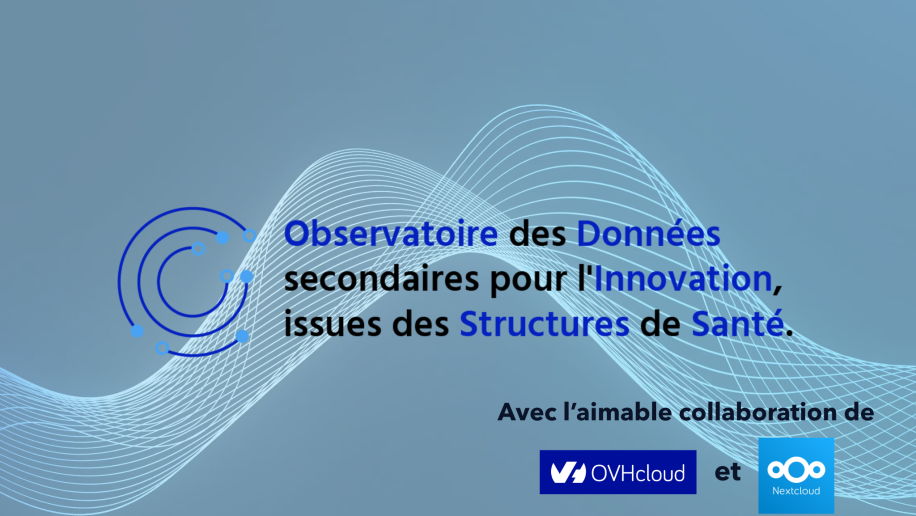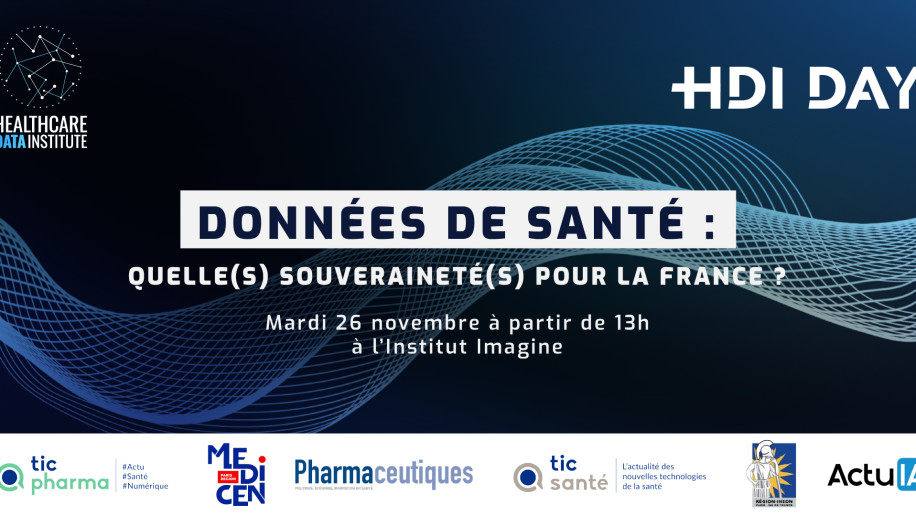Nowadays, it has become almost inconceivable that digitized personal data should not have an application within modern medicine. The emergence of e-health, telemedicine, m-health, NBDC (Nanotechnologies, Biotechnologies, Data Processing and Cognitive Sciences) and Big Data modifies the health benefit, the doctor-patient relationship, and the scientific understanding of the human body and illnesses. The exploitation of personal data is a sensitive subject, as the latter affects each individual’s privacy directly. The situations where difficult strategic choice issues arise, as regards management of personal data, become more copious every day.
In this context, the world’s interaction with NICTs (New Information and Communication Technologies) represents an unstable or even precarious system. Thus, the issues associated with Big Data are significant, as much economically, as for guaranteeing a secure digital space to protect both our private lives and fundamental liberties.
Is there a code of ethics which is appropriate for digital technology?
This question arises time and again and is the subject of debate, indeed, so much that it seems unnatural to associate a human science with a technological science given that they are almost total opposites. Yet, digital technology creates contradictory injunctions on all sides, which, as a consequence, has specific ethical repercussions for information and communication technology (ICT). Big Data may be ethically neutral but its uses are not!
Individual behaviors give rise to applications of this new space and time, which digital technology generates. NICTs are a cultural, and indeed an anthropological, phenomenon. They produce new behaviors, new world views and new social norms.
We can take the example of anonymization, which poses the question of the responsibilities of individuals whose invisibility might free them from certain rules of decorum. The instantaneousness and ubiquitousness, which the Internet allows consequently irreversibly reverberates our actions in our words and thoughts. From now on, ethics and technology should not be linked in line with a two-stage mechanism. Ethical issues should be an integral part of their brief and thus constitute focused ethical thinking.
Consequently, we no longer speak of an interdisciplinary approach but rather of a fusion ending up with a veritable digital ethic where the question of social and moral implications is integrated within NICTs.
In these conditions, it becomes essential to establish expectations and specific ethical predictions in the digital world; and reify new ethical and legal value systems, while always keeping in mind this question: might digital technology pose a threat of misuse to our ethical behavior?
It is from this approach that the reasoning of our ethical thinking must start and lay down ethical principles which are specific to digital operations. The ethics of NICTs may be divided into three main themes:
- Data ethics: defining the ethical principles which guarantee the fair processing of data and the protection of individual rights, while applying Big Data to both scientific and commercial ends;
- Algorithmic ethics: translating the study of ethical problems and the responsibilities of the inventors of scientific data as regards both unforeseen and undesirable consequences, as well as lost opportunities for the invention and application of autonomous complex algorithms;
- Practical ethics: this represents the identification in an ethical framework which is appropriate to shape a professional code of ethics upon data governance and management, favoring both scientific data progress and protecting the rights of those concerned.
In our perspective, the proper use and the protection of these data is inevitably undergoing an ethical reflection about the control and the supervision procedures of the latter to reserve a predominant place for privacy and confidence among producers and information providers, and thus to contribute to a certain control of the risks and deviations from these.
Therefore, anonymity through Big Data has become algorithmically impossible. That is one of the reasons why “algorithmic ethics” has become decisive so that Big Data professionals are finding a fair balance between rational and measured data processing, respectful of one’s privacy, and an over-processing that would be particularly counter-productive in the doctor– patient relationship. These ethics will provide some sense of direction to the management of these huge volumes of data by notably restoring a causal link between the correlations that are revealed by these usages.
Therefore, in order to strengthen citizens’ confidence in companies that use digital health data, I co-founded the Algorithm Data Ethics Label (ADEL) on the ethics of digital processing of health data via automated information systems. ADEL is the world’s first label on the ethics of information systems, processing algorithms and digital data. It lays the groundwork for an « algorithmic ethics », that is, an ethics specific to the digital, illustrated by a grid of good practices and recommendations. (http://www.adel-label.com/)
The main objective of the ADEL label is to provide meaning, image, security, transparency and trust in the algorithmic processing of data to clients of healthcare facilities. This label covers all the actors who deal with digital health data. Its evaluation may have different targets such as: information systems and databases, patient records management platforms, Big Data projects, clinical trials 4.0, medical devices, etc.
Finally, the aim of ADEL project is to have a global reach, especially thanks to the presence of a high-level Expert Committee, and its two honorary presidents, Cédric Villani (Fields Medal, 2010) And Gilles Babinet (Digital Champion France at the European Commission).
Finally, with the advent of digital and “massive data”, there is an entire set of ethics to invent because NICTs design a new relational and sociological paradigm.




